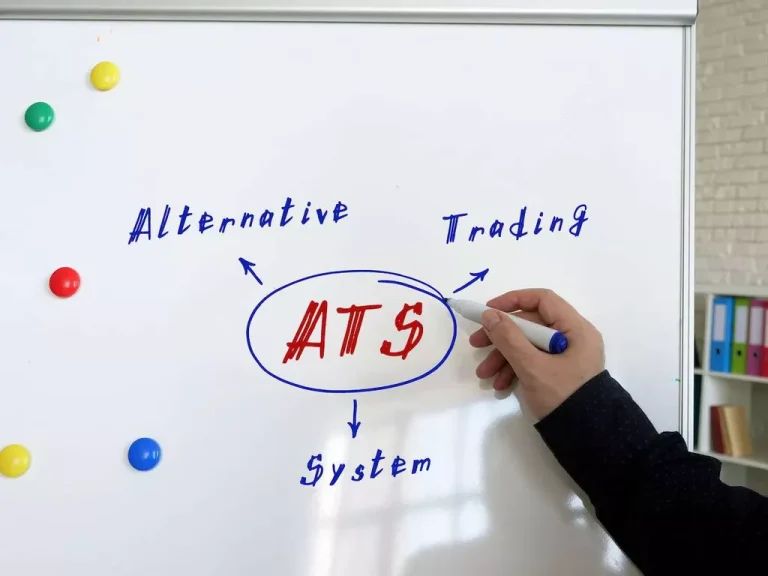Value discovery is the process by which markets decide the honest worth of a security. In conventional exchanges, worth discovery occurs via seen buy and sell orders. Darkish pools, by limiting transparency, could scale back the effectiveness of price discovery, as large orders are hidden from the basic public view. This lack of transparency can result in inaccurate pricing, especially for illiquid stocks or those with restricted public participation. The proliferation of darkish pools has led to market fragmentation, where liquidity is unfold across numerous private venues as an alternative of being concentrated in a single trade.

Darkish swimming pools may also lower transaction costs as a outcome of dark pool trades do not have to pay trade fees, while transactions based on the bid-ask midpoint don’t incur the complete spread. Darkish swimming pools are private exchanges for buying and selling securities that aren’t accessible to the investing public. Additionally known as darkish pools of liquidity, the name of those exchanges is a reference to their full lack of transparency.

Advantages Of Darkish Swimming Pools
Usually, darkish swimming pools are not obtainable to the public, however in some circumstances, they may be accessed indirectly by retail buyers and traders via retail brokers. Dark pool trading refers to personal financial exchanges or venues the place securities are bought and sold outside the traditional public stock exchanges. This article will delve into the mechanics of darkish pool buying and selling, its benefits and disadvantages, its impact on financial markets, and the regulatory considerations surrounding its use.
- Dark pools enable for trading execution away from the spotlight of public markets.
- Darkish Swimming Pools supply a more non-public and fewer unstable buying and selling surroundings, as orders are matched anonymously and executed outside of public exchanges.
- This sparks considerations about market manipulation and unfair advantages for sure buyers, significantly high-frequency merchants.
- Though considered legal, anonymous trading in darkish pools is ready to function with little transparency.
Who Operates Darkish Pools?
This led to the development of darkish pools, that are basically non-public variations of those electronic communication networks. Dark swimming pools have become an integral a half of the global monetary system today, with billions of dollars value of securities traded on these private exchanges day by day. Darkish swimming pools originated when electronic communication networks (ECNs) were created to match consumers and sellers of securities. ECN networks had been initially used by brokers to execute trades on behalf of their clients. Institutional buyers started using these networks to execute large trades anonymously with the rise of computerized trading. Post-trade reporting in dark swimming pools is topic to regulatory requirements that fluctuate by jurisdiction, making enforcement a complex task for regulators.
Examples of agency brokers or exchange-owned entities embody ITG, Liquidnet, Instinet, T Rowe Value etc. Darkish pool trading faces vital criticisms, such as an absence of transparency and potential market manipulation, which can undermine market integrity. These factors pose regulatory challenges that will influence investor confidence. Darkish pool orders function by matching trades internally and executing them anonymously, with the small print https://www.xcritical.com/ reported only after the transaction is complete to make sure confidentiality. The opaque nature of dark pool buying and selling makes efficient regulation tough.
These strategies what is darkpool trading usually contain buying securities at midnight pool at a cheaper price than the general public market and then promoting them on the public market at the next worth, profiting from the difference. Dark swimming pools can even reduce worth discovery, meaning that the true market value of a safety is most likely not accurately reflected in the lifeless of night pool. Lit dark swimming pools are regulated by securities legal guidelines and are required to report their buying and selling exercise to the related authorities.
This can lead to conflicts of curiosity, because the broker-dealer can trade against their very own purchasers. Regulators like the SEC face challenges in sustaining market integrity in dark swimming pools, elevating considerations about the reliability of market costs. The following subsections will delve into these criticisms and risks in more detail. Moreover, the anonymity of darkish swimming pools can make it simpler to hide abusive practices like front-running, defending institutional investors from predatory trading practices.

A darkish pool is a non-public trade where consumers and sellers can commerce securities, often stocks or bonds, anonymously, with out disclosing their identification or the small print of the transactions. Merchants need to grasp that dark pool prints are just a worth degree that is noted to be important quantity, and they’re solely accessible on private exchanges. My first step with darkish pool information is to find where all of the late buy/sell prints are. These prints are a transparent indication of how the market will go about 90% of the time. Internationally, regulatory our bodies in numerous jurisdictions have their own guidelines and oversight mechanisms for darkish pool buying and selling.
Personal brokerage corporations facilitate dark pool buying and selling by matching buying and selling orders, consolidating bidding, and asking costs to supply the most effective trading situations. Front-running is a apply the place a dealer executes orders based on superior information of a pending trade. As mentioned earlier, dark pools allow massive trades to be made with reduced worry of entrance working.
Dark pool trading continues to evolve as an important component of modern market construction. The implementation of subtle technology, combined with cautious risk management and strategic execution, enables institutional buyers to attain optimum trading outcomes. Understanding the nuances of darkish pool mechanisms, sustaining robust compliance frameworks, and utilizing superior analytical instruments stay important for profitable participation in these personal markets. Dark pool buying and selling permits investors to commerce without disclosing their particulars publicly. There are several benefits for buying and selling in such platforms like less transactional fees, more privacy, lesser danger of devaluation, and so on.
This delay has sparked debates among market members about the total efficiency of price discovery mechanisms. Darkish pool trading, often referred to as the shadowy realm of financial exchanges, has been a pivotal component on the planet of securities trading since its emergence within the late 1980s. This private and clandestine market serves institutional traders, permitting them to execute giant trades with out revealing their intentions to the broader public. The lack of transparency also can work towards a pool participant since there isn’t a guarantee that the institution’s trade was executed at the most effective value. A surprisingly large proportion of broker-dealer dark pool trades are executed inside the pools–a process that is called internalization, even when the broker-dealer has a small share of the U.S. market. The darkish pool’s opaqueness can even give rise to conflicts of curiosity if a broker-dealer’s proprietary traders commerce towards pool purchasers or if the broker-dealer sells special entry to the dark Initial exchange offering pool to HFT companies.


